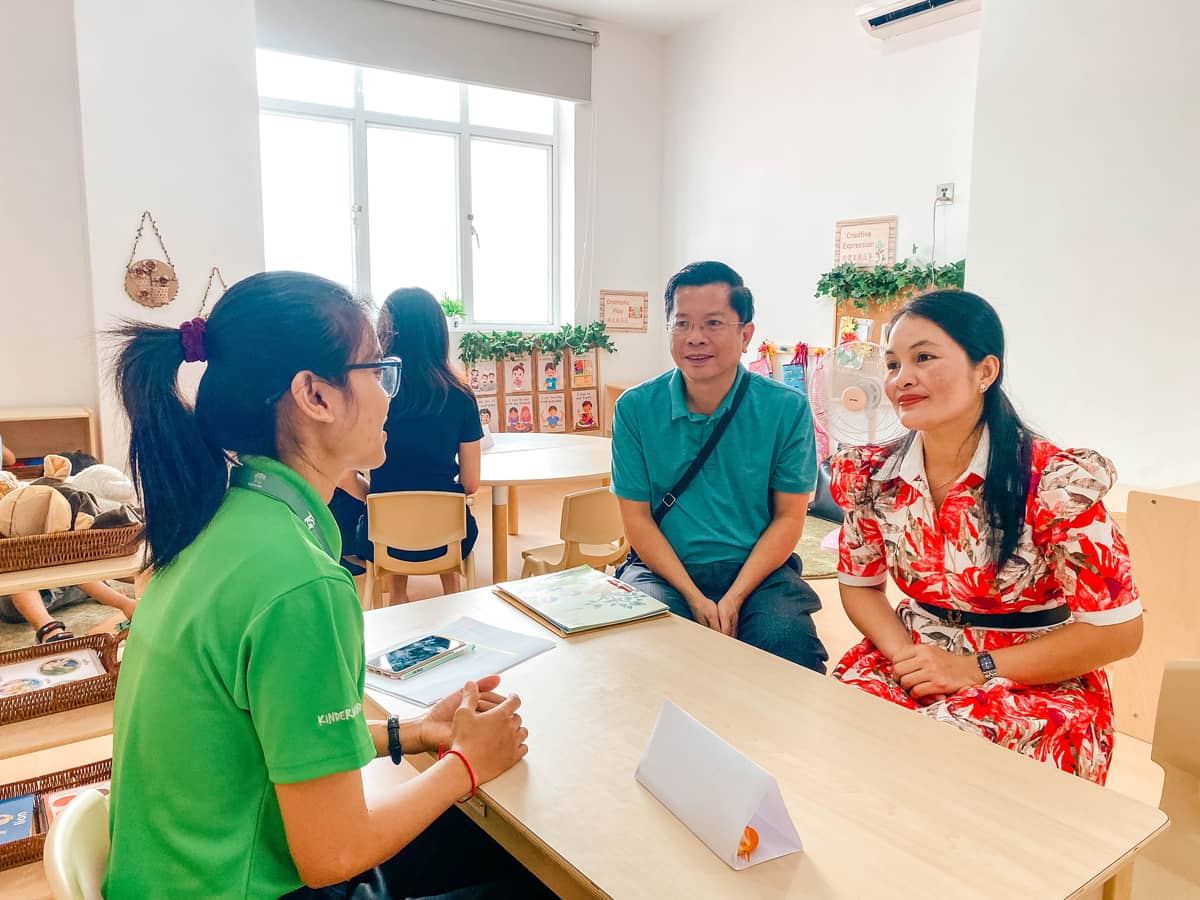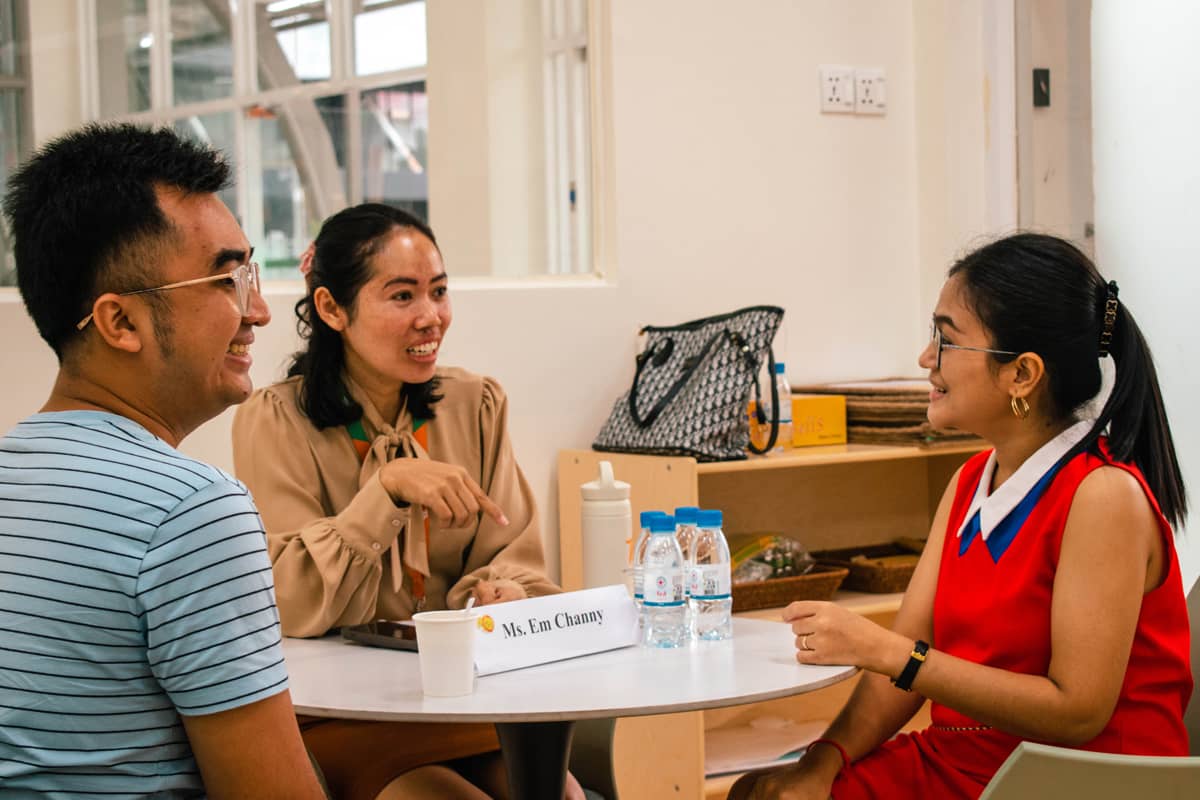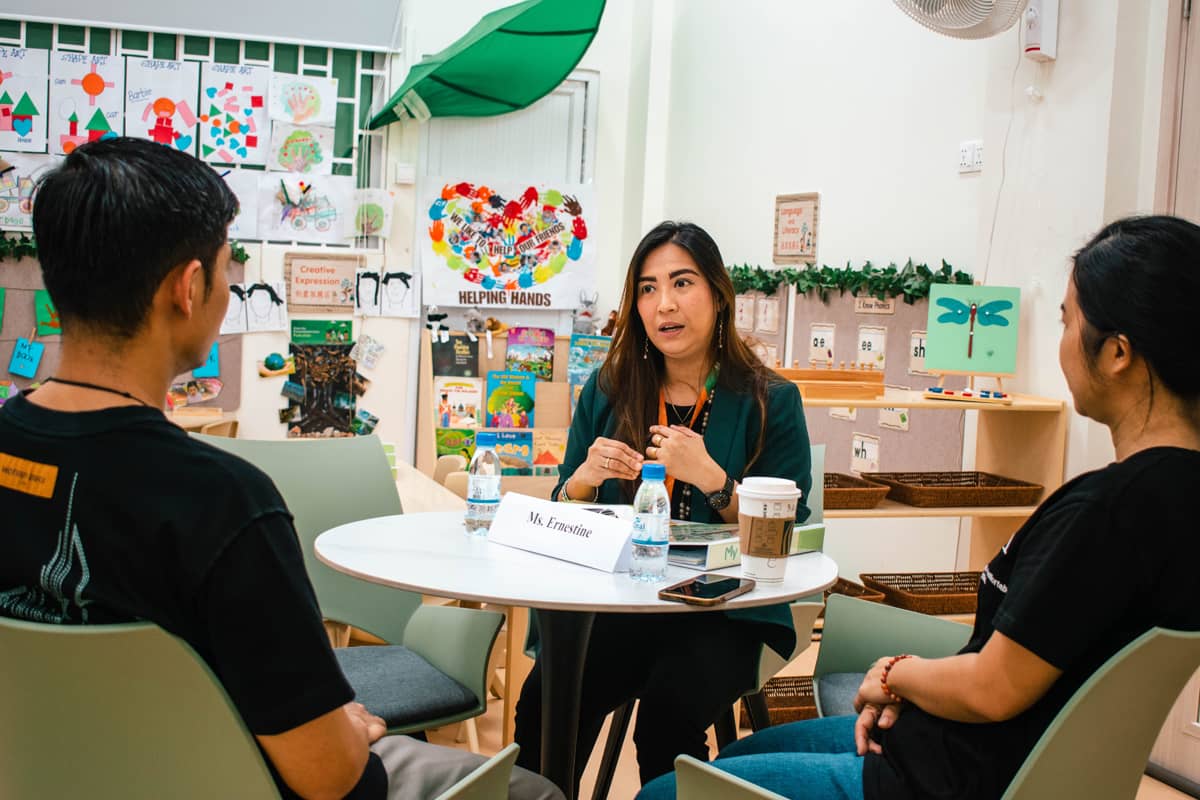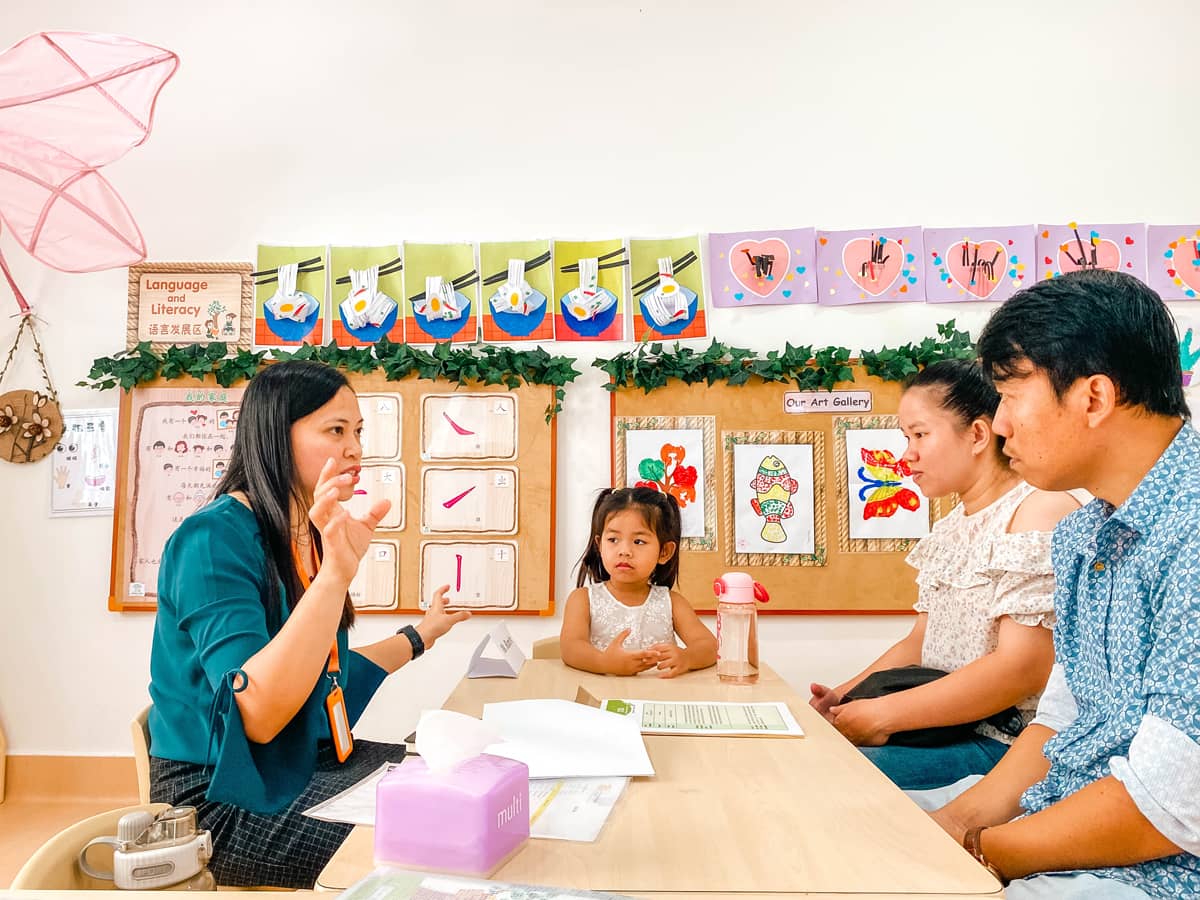A parent-teacher meeting is a pivotal event that serves as a bridge between home and school, allowing parents and teachers to collaborate effectively. These gatherings provide a unique opportunity for both parties to engage in meaningful discussions about a child’s academic achievements, social development, and overall well-being.
Recently, Kinderland held a constructive parent-teacher meeting where parents and educators came together to discuss and share valuable insights and observations about the child, ensuring a comprehensive understanding of the student’s needs. This collaboration fosters a supportive environment where the parent-teacher partnership work towards a common focus in helping children achieve the best of their individual capabilities. These meetings are vital in nurturing a robust home-school connection.

“Khmer teacher explaining the child’s learning progress with the parents”
Parents and their families arrived with enthusiasm clearly visible on their faces, exchanging friendly nods with the teachers. The colourful teaching charts adorning the walls caught their attention as they eagerly anticipated hearing everything the teacher had to share about their child’s progress.

”Parents shared moments of joy and laughter upon hearing their child’s progress.”
Meanwhile, the room buzzed with soft discussions, occasionally interrupted by laughter, as teachers passionately shared insights into their classrooms and the experiences shaping their students.

“Parents paying close attention to the sharing by their child’s teacher.”
The teacher provided a detailed assessment of each child’s performance, highlighting their strengths and areas for improvement. The teachers shared their observations of the chidren’s engagement with the learning material, class participation, and any areas needing extra support. Parents were encouraged to ask questions, express concerns, and share home observations that might affect the child’s learning.

“Teacher was earnestly discussing the child’s development.”
Engaging in the two-way communication nurtures a collaborative relationship, significantly improving the educational setting and the child’s overall preschool experience. Furthermore, when parents actively participate in school activities and comprehend the teaching strategies in place, they can more effectively support their child’s learning at home. Through these interactions, a strong partnership between home and school is formed, which is essential for creating a supportive and enriching learning environment, helping a child thrive better through a collaborative setting.